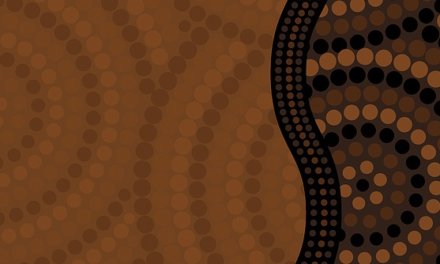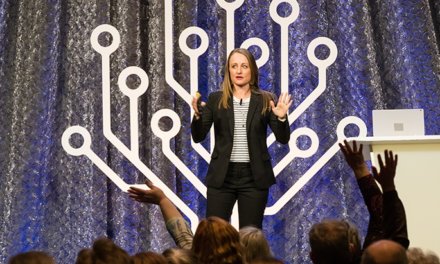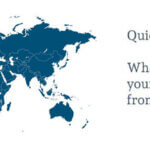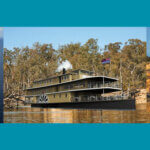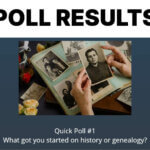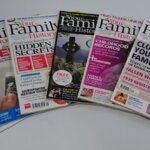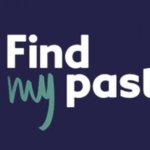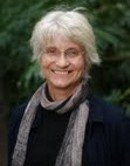 Continuing our Speaker Profiles for Unlock the Past’s 4th History and Genealogy Cruise, and we have well-known author Noeline Kyle, who will be one of the guest speakers on the cruise.
Continuing our Speaker Profiles for Unlock the Past’s 4th History and Genealogy Cruise, and we have well-known author Noeline Kyle, who will be one of the guest speakers on the cruise.
With a passion for researching the female side of the family, together with writing about history, it’s was inevitable that Noeline would write books on both of these topics.
Noeline’s knowledge on these topics, together with being able to teach you how to cite your sources properly (which let’s face it, it isn’t the easiest thing in the world to do), means that her talks on the the cruise are bound to be quite popular.
==================================================
NAME: Noeline Kyle
HOMETOWN/COUNTRY: Macleay Valley, New South Wales
DAYTIME JOB: Professional Historian
Q1. Think back to your childhood … now what is your favourite memory from that time?
Most of all I remember my childhood on the farm. Dad’s sisters and brothers were a happy, boisterous, connected group. Our young aunts scooped us up and plied us with food, love and carefree laughter. We would sit in the old kitchen near the open fire toasting the thick slices of bread our aunts had baked that morning and smother them in cream and jam. My grandfather would sit at the huge red cedar table he had made with his own hands for the family and eat his porridge. We would hand him the toast. His gnarled fingers would curl around ours, I can still feel their sandpapery texture, see the aging, veined skin. My grandfather had been a handsome man when younger, when he and Florrie had stood together taking their marriage vows, but now he was thin and worn from hard work. Now, many decades since, I have been privileged to walk around the remnants of the farms with Aunt Mary as she has reminded me about the fruit trees, the lush vines, the family, the love and laughter there used to be there near to and by the creek. I am so glad that Mary and I are aging together because without her willingness to share her memories I would be bereft.
Q2. There’s always ‘something’ that sparks an interest in genealogy/history? What was it that sparked your interest?
My great grandmother Nurse Mary Kirkpatrick’s story, on my mother’s side. I began researching her story at the same time as my interest was awakened in women’s history as I returned to study as a mature aged university student in the mid 1970s. I found that the techniques of family history, focused as they are on the gathering of family data through certificates, obituaries, land records and much else, were a perfect fit for my many forays into researching and writing stories of women, not just in my own family, but in the wider Australian community. The lives of women and children are found in the family and to my delight were more easily found with the methods used so thoroughly and so well by family historians everywhere.
Q3. How old were you when you developed an interest in this hobby?
My interest in family history coincided with my return to study at university in the late 1970s and early 1980s. At the same time there was an upsurge in interest in researching family history by local communities and many local family history groups emerged throughout Australia. As I went on to shape my academic career I continued to work with and support family historians and their work in the researching and writing of family history. And it is here in the genie community where I have made great friendships, learned valuable lessons about historical records and where I continue to find enthusiastic, energetic family historians working their magic everywhere.
Q4. What countries across this big wide world did your ancestors come from?
Mostly Ireland. My mother’s side is from Northern Ireland (Belfast) and my father’s side from Roscommon and Tipperary.
Q5. Is genealogy/history your main job?
I am a professional historian researching and writing about women in Australian history. I retired from university teaching in 2001 but I have I continued to teach writing family history, memoir writing and how to combine good research with that writing, ever since. I draw on my professional history background to support and develop more professional researching and writing for family historians (through my workshops, seminars and publications).
Q6. Do you have a genealogy mentor or idol? Someone who has deeply influenced you in your research along the way?
I always admired the work of Nancy Gray, she produced the book Compiling Your Family History in the 1960s (now produced by SAG), and I think it is still one of the best books for beginners to use when researching their family history.
Q7. We all know that you family history can reveal some amazing things. Have any of your discoveries resulted in a life-changing experience?
What I call my Bendolba Bible. After 25 odd years of research into the Kyle family only recently have I been able to complete any significant research on the two brothers, Michael and Henry Kyle, who eked out a precarious living in early Bendolba near Dungog. My original ancestor Henry died in 1859 and his wife Esther re-married and left the district with their later family history now found elsewhere. Michael stayed in the district. He died at Lochinvar (1900) and is buried in the grounds of the Roman Catholic Church. I had a phone call from Ken Carlton, who grew up in Dungog, but who now lives in Lane Cove. He had the original Bible which had belonged to Michael Kyle listed on the frontpages all of the names of Michael’s children’s births. Someone had given the Bible to Ken’s son, having rescued it at a church jumble sale and luckily for me Ken was able, through a series of phone calls, to finally find me and give it to me. I was delighted to finally have something in my hand that actually belonged to that family. It had arrived in Australia in 1841 with the Kyle brothers and finally went on display at our reunion in 2007 more than 150 years hence.
Q8. What do you find most challenging about research?
Finding women and children in the records and writing about them with some depth and flair is one of the hardest tasks for the family historian. In my book Finding Florence, Maude, Matilda, Rose, I have a phrase “Women warriors are not visible”, they wage their wars from the back row, often quietly and can be overlooked as leaders and shapers of society. It is my mission to try and find more innovative and interesting ways to find and access the records and write more vividly and well about women and children in the family.
Q9. If you had a time-machine what relative (past, present or future) would you most like to meet?
I would like to meet my great grandmother Nurse Mary Kirkpatrick. I was three when she died and having written her biography I now wonder what was she really like, and how well do we really know or understand characters from that long past. I would like to ask her how she coped as a single parent from the 1890s with a new baby son and another just entering school. I would like to ask her about her dedication.
Q10. Still using that time machine, you’ve been propelled into the future five years, what do you see yourself doing?
I tell my children, if I am missing in action, they will find me in a library or archive somewhere searching out the elusive documents of our past…so that’s where I’ll be in five years, ten years, or more, there is always one more project to do, one more document to find and one more research lead to pursue!!!
Q11. What value do you think social media plays in genealogy these days?
I have been using the internet since the 90s, and I have seen the recent changes and the interest in social media. I think blogging might be of considerable use already but not sure about others. I find most of the family historians I meet and interact with use email and it continues to be the most useful for them for research and for contacting other family historians, libraries, archives, or specific organisations. Will this be enhanced by social media? I don’t know. I have grandchildren who use Facebook etc., but they use it for social/everyday activity. I find, because I am still attached to a university that email continues as the main form of communication. I am sure there will be more use of social media in the future and if it has value for family history. I am sure it will emerge and be shaped by those who see its potential.
Q12. What do you do when you aren’t doing genealogy or history?
I am a mother and a grandma, and I have many friends and family commitments. I do photography beginning some years ago with a film camera and a love of black and white photographs, gardening, walking, swimming, and I travel widely to to do my workshops, seminars and talks. I am an honorary Professor at the University of Sydney and I find my interaction with my colleagues there supports my love for history and family history. I love the cinema and as I live in Sydney the choices for leisure are so wide who could be bored? I love to visit Circular Quay and see the huge liners parked at the Quay and to imagine where they have been. I like, too, to think about how over the centuries men and women have boarded ships, large and small, to travel to places far away. I love the stories of 19th century women travellers like Isabella Bird, a middle class Englishwoman, who travelled widely to the Rockies in Canada, to the Japanese island of Hokkaido, to Malaya, Morocco, Tibet, Korea and China. Travel was not easy but she did it in style touring Morocco on a black stallion given to her by the then Sultan. I can only imagine the sight of this woman embarking and then setting out on her journey with a retinue of servants, horses, foodstuffs, tents, bedding, clothing – she waded through water up to her neck, through pouring rain, searing heat, bitter cold, wind and snow. And Isabella Bird loved every moment of it. This drama of tropical sunrise and storm, this rolling, rollicking life on the ocean wave was, wrote Isabella Bird, most enlivening. And so it has always been, the romance, the drama and the adventure of life at sea so tantalizing, so alluring for us all. Today the cruise offers all of this and more with the added promise of cosy cabins, excellent food, many activities and the comfort of a large ocean liner. And on a genealogy cruise, we have as well the enthusiasm of fellow genies as passengers on a trip of a lifetime.
Q13. What do you hope to get out of a genealogy cruise?
I hope to meet many genies new to family history and provide support and encouragement for the writing and publishing of their family stories. I hope to catch up with old friends, and I hope also to learn more about how and why and in what way genies plan their research and writing of family history. I love to teach but I know that learning from the varied experiences, fabulous ideas and creative enterprise of my colleagues and students is one of the most powerful and fun parts of talking to and supporting family historians. I am looking forward to face to face talks in the research zones and to informal meetings with individuals on the cruise. Roll on February 2014!
Q14. Share with us a few (up to five) of the genealogy websites that you tend to spend the most time on?
National Library of Australia, www.nla.gov.au
CoraWeb – Web Sites for Genealogists www.coraweb.com.au
NSW Registry of BDMs www.bdm.nsw.gov.au
NSW State Records www.records.nsw.gov.au
Q15. Do you have any wise words for those just starting out in genealogy?
Write as you do your research. Certainly keep researching, after all it is so much fun this research journey, but start writing now. However, as much as we love the research it is not enough….at some time you need to put pen to paper, or fingers to the computer, and write, and the earlier you do that in the research process the easier the writing will be. As you research and write you gain insight into the long past and with some imagination and judicious interpretation will be able to fill in those gaps that well find from time to time in our research. And, you will write more easily, and write better history if you begin as early as possible….Writing out the words on the page, your ideas, your facts, your stories – and putting these together, at least in draft form , forces you to see more clearly where you need to go to do the writing , the stories will begin to take shape in ways that are unique to your perceptions of the world, and it will begin to make more sense…You are the story teller here and it is your job, as the writer of the family history, to have the final say in how it will be shaped.
==================================================
For those of you who are going on the 4th cruise, here is a list of topics that Noeline is expected to be speaking on, based on the Preliminary Program:
– Forced and voluntary emigraton to Botany Bay: how to research women
– Writing workshop part 1: getting started writing your family history
– Writing workshop part 2: creative lives, constructing chapters
– “Frankly my dear, I don’t give a damn’: citation & copyright
– Haven in a heartless world!: family, women, children
BE SURE TO CHECK OUT NOELINE”S WEBSITE AND BLOG:
writingfamilyhistory.com.au
familyhistorywrite.blogspot.com.au/
AND YOU CAN ALSO FIND NOELINE ON …
Facebook https://www.facebook.com/noeline.kyle.3
Twitter @famhistwriter
Google+ https://plus.google.com/u/1/106309209710454264658/posts?partnerid=gplp0
LinkedIn http://au.linkedin.com/pub/noeline-kyle/40/909/948
DO YOU HAVE ANY OTHER COMMENTS YOU’D LIKE TO TELL OUR READERS?
Read. One of the best way to become a better writer and develop your own style is to become a better reader. All writers read. All great writers read a lot. Read anything and everything. Read fiction, non-fiction, biographies, memoirs, diaries, the newspaper, stories on the net, blogs, magazine articles, family histories, poetry, Jane Austen, crime novels, hobby books, history, Henry James, J K Rowling, how to books – it does not matter what you read but read lots, and read a variety of styles and formats. The more you read, the more you will understand what does and does not work for you. And the more you read the more you will understand how stories work, why and in what way writers move between paragraphs and how they pace their writing, create and construct their chapters, and choose to describe their characters. Visit a library, a bookshop, your own bookshelves – and study how others write and construct their books.



